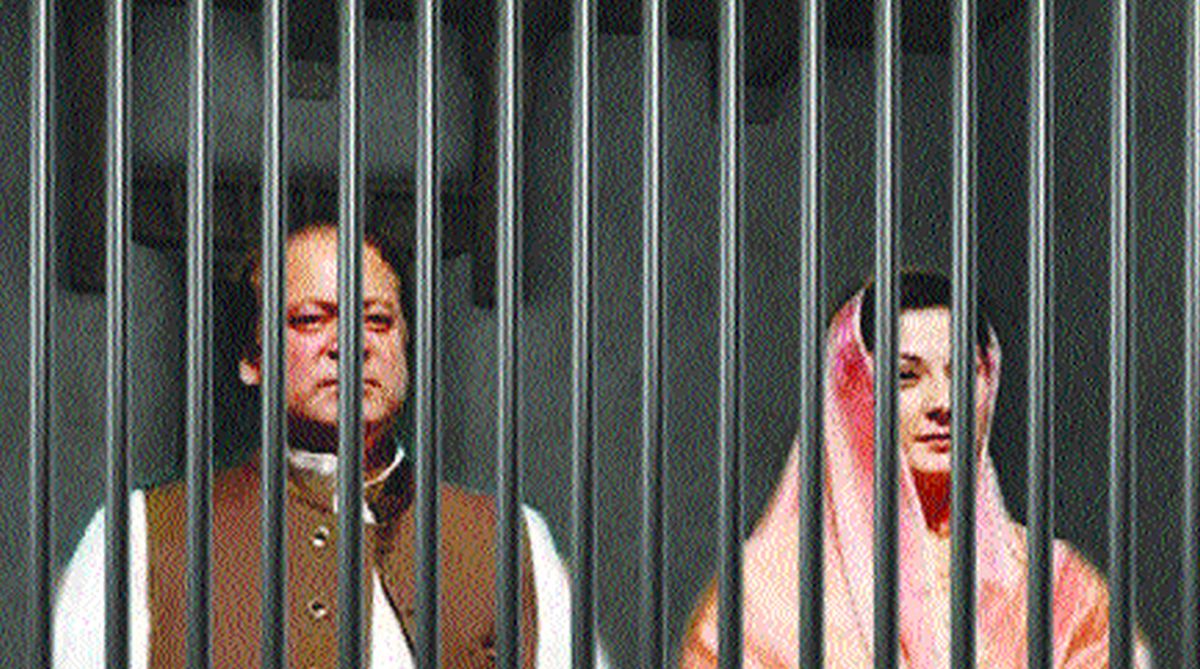Pakistan terrorists cannot hide behind claim that they are ‘civilians’: India
India has declared that Pakistan-based terrorists cannot claim immunity from anti-terrorism action by asserting that they are civilians.

It might on occasion sound trivial to aver that laughter and tears go together. Yet in their moment of grief, the Sharif family of Pakistan has had its share of both and in the span of a week. The former Prime Minister and PML(N) leader, Nawaz Sharif, is a free man as are his daughter, Maryam, and son-in-law.
As the three stepped out of Lahore’s Adiala jail, it was pretty obvious that their freedom has a profound connotation for the Pakistani establishment not the least because the Islamabad High Court order has been a severe blow to the National Accountability Bureau (NAB), which (prior to the elections) had sent the three to prison in London’s Avenfield corruption case. It is open to question whether the verdict at the hustings would have been any different if they were free citizens when the votes were cast. In a sense, therefore, the High Court’s directive carries a message to the Rawalpindi GHQ as well.
Advertisement
Though the judiciary has stopped short of pronouncing a full and explicit judgment, there is little doubt that the NAB court’s verdict was flawed, one that suited the compulsions of the military and Imran Khan’s Pakistan Tehreek-i-Insaf. Certain other aspects of the NAB proceedings will continue to be heard as also the appeal against the initial conviction by the NAB court. Suffice it to register that the crucial facet to the NAB’s verdict stands denuded, and Sharif and his family can be said to have won the first round. It is fervently to be hoped that the highest standards of justice will prevail.
Advertisement
Markedly, the NAB was pulled up by the Supreme Court on Monday when it rejected its petition challenging the Islamabad High Court’s decision to hear Sharif’s petition against the Avenfield verdict. The country’s Chief Justice, Saqib Nisar, has binned the NAB petition as “frivolous” and imposed a Rs 20,000 fine on the bureau. Whichever manner the trial evolves, the NAB’s standing has been considerably dented both by the apex judiciary and the High Court. The impact on the bureau must be no less critical than the Sharif family’s march to freedom.
If the quasi-judiciary was somewhat politicised before the elections, so too was the concept of accountability. In the net, the NAB has come through as an entity that is neither fair nor independent; its praxis is not always embedded in the law. Is it possible that the bureau went on overdrive while hearing the case against Sharif? Pre-eminently, both the Chief Justice of Pakistan, Saqib Nisar, and Prime Minister Imran Khan have on several occasions urged the NAB to “act in a more restrained and lawful manner”. That said, the Islamabad High Court judgment, awarded at the time of mourning, lends no scope for a post-election bout of political shadow-boxing.
Advertisement